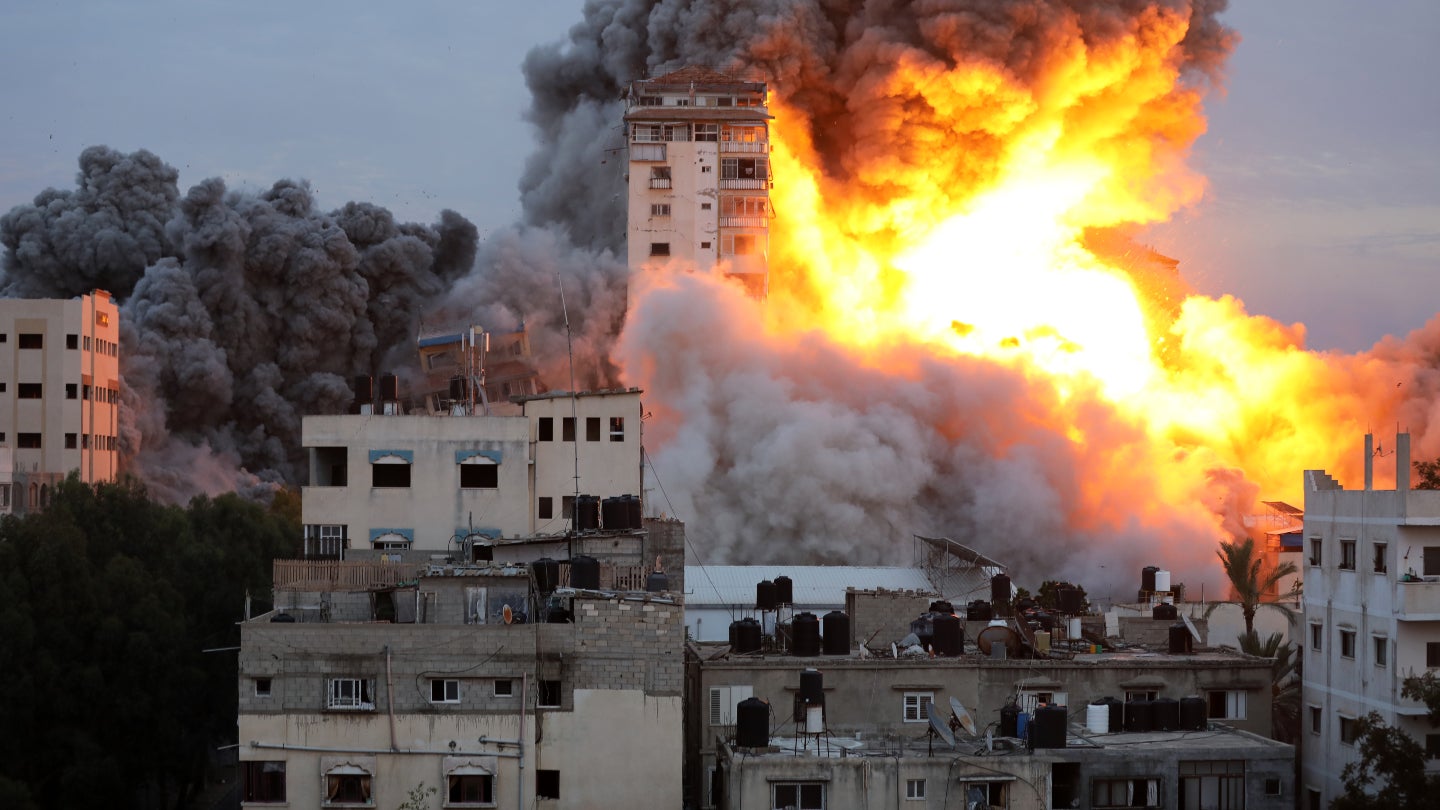
Officials say Iran provided military training, logistical assistance and millions of dollars in weapons to Palestinian militant group Hamas’ before its surprise assault on Israel.
“What I can say without a doubt is that Iran is broadly complicit in these attacks,” US Deputy National Security Adviser Jonathan Finer said on 9 October in an interview with CBS News.
“Iran has been Hamas’s primary backer for decades. They have provided them weapons. They have provided them training. They have provided them financial support. We are very clear about a role for Iran.”
Suspicions of Iranian involvement have been fanned by Tehran’s public declarations of support for Hamas. Yahya Rahim Safavi, former commander of Iran’s Revolutionary Guards, said it would support Hamas “until the liberation of Palestine and Jerusalem”.
Safavi is also a top advisor to Iranian Supreme Leader Ayatollah Ali Khamenei, who said: “We kiss the hands of those who planned the attack on the Zionist regime”, despite denying direct Iranian involvement in a rare speech televised on 10 October.
Tehran aims to disrupt Saudi-Israel relations
Iran has a long history of supplying anti-Israeli militant groups with weapons, including Hezbollah and Hamas.
In talks with the Taliban in Afghanistan, Iranian foreign minister Hossein Amirabdollahian called for Islamic countries to unite in support for “the oppressed people of Palestine and Al-Aqsa Mosque”.
Such statements have been perceived by Iran’s regional rival Saudi Arabia as a threatening sign that Tehran is willing to stir up regional conflict to prevent Riyadh from normalising ties with Israel.
Supported and brokered by the US, enhanced Saudi-Israeli relations would shift geopolitical power in the Middle East towards Iran’s adversaries, unsettling Tehran.
Western nations mobilise support for Israel
The US, UK, France, Germany, and Italy have all declared public support for Israel.
Washington has been the most vocal in condemning the Hamas attacks and has sent several forms of military assistance including its Ford Carrier Strike Group to the Israel Defence Forces (IDF).
Germany and Austria have suspended all aid for Palestinian territories. Pressure is mounting on the EU to do the same ahead of the bloc’s emergency summit on 10 October.
In talks with Josep Borrell, the EU’s foreign policy chief, Amirabdollahian criticised the West’s pro-Israel stance. “If Europe and the West had distanced themselves from double standards and had reined in Netanyahu’s crimes, perhaps Palestine would not witness this situation,” he said.
Amirabdollahian also called on the international community to defend Palestine against the Israeli regime’s “systematic crimes”.
UN Secretary-General Antonio Guterres has issued a plea for peace, condemning atrocities committed by both sides. Palestine’s Health Ministry says at least 700 people have been killed in Gaza and West Bank, while Israel’s death toll stands at more than 900, according to the IDF.
Tehran’s mission to the UN said: “We are not involved in Palestine’s response, as it is taken solely by Palestine itself,” in a statement released on 9 October.
Israeli retaliation felt from Gaza to Lebanon
Israel is currently engaged in conflict on two fronts. Aside from its ceaseless air strikes on the Gaza Strip – which have already exceeded 2,000 – Israel has also launched military operations along its northern border with Lebanon.
On the morning of 10 October, Israel said that a deputy military commander was killed in clashes with Hezbollah, a pro-Hamas militant organisation which controls large swathes of Lebanon.
Israel claims to have retaken control of the Gaza border and has begun planting mines where Hamas militants had toppled the barrier during the weekend assault. Thousand of buildings in the Gaza Strip have been obliterated by Israeli’s aerial bombardment.
Hamas, meanwhile, is continuing its own series of air strikes. On 9 October, the group announced it would begin targeting Tel-Aviv’s Ben Gurion international airport in a statement on Telegram.
Since its initial surprise attack on 7 October, Hamas has had difficulties penetrating Israel’s renowned Iron Dome anti-rocket defence system, built by US’ Raytheon Technologies and Israeli contractors Rafael Advanced Defense Systems.
Inquests have been made over how easily Hamas militants were able to pass Israeli intelligence undetected in the initial attack.
Our signals coverage is powered by GlobalData’s Thematic Engine, which tags millions of data items across six alternative datasets — patents, jobs, deals, company filings, social media mentions and news — to themes, sectors and companies. These signals enhance our predictive capabilities, helping us to identify the most disruptive threats across each of the sectors we cover and the companies best placed to succeed.


